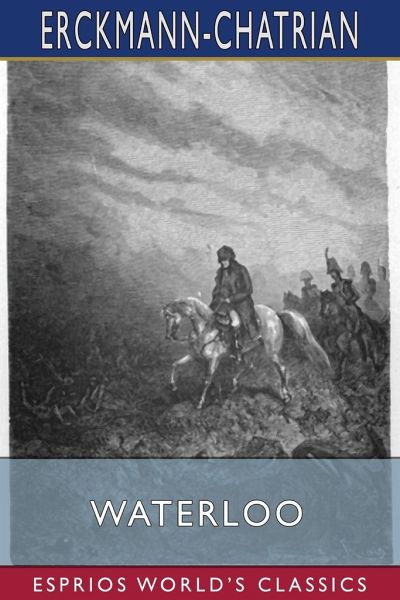Nicht lieferbar

Waterloo (Esprios Classics)
Versandkostenfrei!
Nicht lieferbar
Weitere Ausgaben:
Erckmann-Chatrian was the name used by French authors Émile Erckmann (1822-1899) and Alexandre Chatrian (1826-1890), nearly all of whose works were jointly written. Both Erckmann and Chatrian were born in the département of Meurthe (now Moselle), in the Lorraine region in the extreme north-east of France. They specialised in military fiction and ghost stories in a rustic mode Lifelong friends who first met in the spring of 1847, they finally quarreled during the mid-1880s, after which they did not produce any more stories jointly. During 1890 Chatrian died, and Erckmann wrote a few pieces un...
Erckmann-Chatrian was the name used by French authors Émile Erckmann (1822-1899) and Alexandre Chatrian (1826-1890), nearly all of whose works were jointly written. Both Erckmann and Chatrian were born in the département of Meurthe (now Moselle), in the Lorraine region in the extreme north-east of France. They specialised in military fiction and ghost stories in a rustic mode Lifelong friends who first met in the spring of 1847, they finally quarreled during the mid-1880s, after which they did not produce any more stories jointly. During 1890 Chatrian died, and Erckmann wrote a few pieces under his own name. Many of Erckmann-Chatrian's works were translated into English by Adrian Ross.




